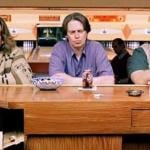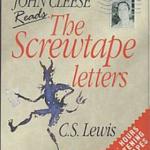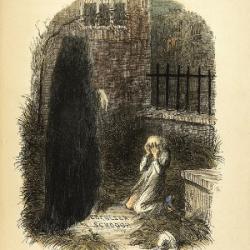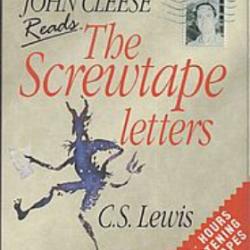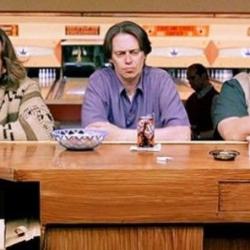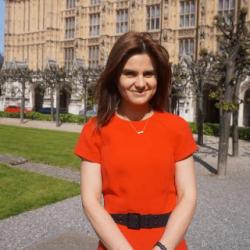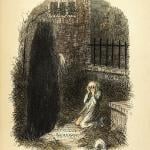Since the topic of “political violence” is once again being widely discussed (if very rarely clearly defined), I’ve been thinking again of Missionary Bob.
Bob was a missionary for InterVarsity Christian Fellowship who was sponsored (funded) by the fundamentalist Baptist church I grew up in. This was unusual — exceptional. Our church did not approve of IVCF and did not normally sponsor missionaries associated with them. InterVarsity was “evangelical,” which meant they were suspiciously liberal and squishy. Specifically, the head of IVCF at the time had apparently refused to fire someone who confessed to praying in tongues during his private devotional practice, and so funding missionaries from InterVarsity would therefore be tantamount to endorsing glossalalia and all the demonic dangers of charismatic/Pentecostal Christianity.
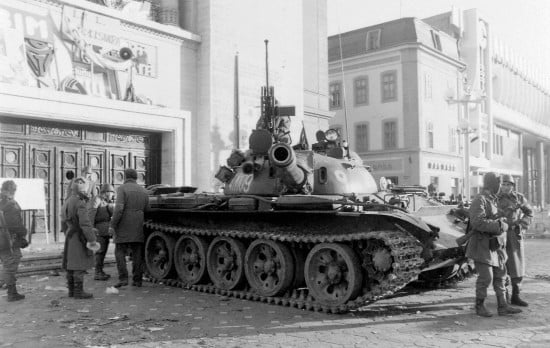
But our church made an exception for Missionary Bob because my dad was on the church mission board and my dad had known Bob since he was in junior high. Bob spent his summers attending a Christian camp where my dad worked as a counselor. This was a boys camp. There was a girls camp across the lake, where my mom worked as a counselor. That’s how my parents met — at the “ice cream socials” where campers and counselors from both camps gathered each week.
So whenever Missionary Bob was back home in the states — on “furlough,” as its called in missionary lingo — he would visit our church to thank us for funding his work, and then he would come to our house for Sunday dinner. Usually when we had missionaries come to our home for dinner, I would ask them for stories about the far-off lands and exotic places they worked, but Missionary Bob was someone I could ask for stories about the most mysterious foreign land of all — the land of my parents as young people.
This was much more interesting than asking Missionary Bob about his own work, in Austria, which he always described somewhat blandly as coordinating Bible study groups among college students. Unlike most missionaries, he didn’t seem eager to share specific stories about his time “in the mission field.” But that was fine with me. Who wants to hear boring stories about Austrian college students when you could, instead, be hearing stories about what your own parents were like when they were college students?
You may be wondering what any of that has to do with “political violence.”
Well, it turns out that all through the 1980s, Missionary Bob wasn’t being completely transparent about his missionary work. Yes, he was organizing and coordinating Bible study groups among college students. And yes, his office address was in Austria.
But he didn’t mostly work in Austria. He mostly worked in Hungary and Romania. This was, as we said back then, on the other side of the “iron curtain.” This was in countries and cities where it was illegal for college students to form Bible study groups — or to gather in groups for almost any other non-official government-sanctioned reason.
We didn’t learn this until Missionary Bob and IVCF disclosed the full nature of his work in 1990 — after the revolutions of 1989 transformed the countries where he had worked all those years.
One of the places it turns out he had worked with underground-ish covert Bible study groups was the Romanian city of Timișoara.
Timișoara was the epicenter of the Romanian Revolution — the last, and the most violent, of the great revolutions of 1989 that transformed eastern Europe. That revolution began in that city — at a church in that city. It ended with a two-hour revolutionary trial after which Nicolae and Elena Ceaușescu were executed by firing squad on Christmas Day.
I regret that I never had the chance to talk to Missionary Bob after he told my parents about where he’d really been working all those years. Had he worked with László Tőkés’s church, the place where this revolution began? Were his friends and colleagues involved in the protests? I wish I’d gotten a chance to ask him about all of that.
The first open protest of the revolution came on December 16, 1989, when the Ceaușescu regime tried to evict Pastor Tőkés from his church. A crowd of protesters ringed the church. The crowd grew. Here is how the Wikipedia article on the revolution described the events of the following day:
Riots and protests resumed the following day, 17 December. The rioters broke into the district committee building and threw party documents, propaganda brochures, Ceaușescu’s writings, and other symbols of Communist power out of windows.
I don’t think the word “riot” is properly employed there.
“Riot” and “rioting” are not so much words that convey meanings as they are tools that assert claims of legitimacy or illegitimacy. If the dictatorial regime had maintained power and suppressed the revolution, then this ransacking of the secret police’s headquarters might properly be called “rioting” — illegitimate, lawless behavior that deserves to be suppressed by the legitimate, lawful powers that be. But because the revolution succeeded, it is now permissible to recognize that Ceaușescu’s dictatorship was, itself, lawless and illegitimate, and therefore opposition to it cannot be categorized as illegitimate — as “rioting.”
The other function of the word “rioting” is also that it is employed to blur the line between property damage and “political violence.” This, again, is always contingent on whose property it is that gets damaged. In terms of classic literature, breaking Sal’s window is both “rioting” and “political violence.” Breaking Raheem’s radio is not property damage that counts as such any more than killing Radio Raheem counts as “political violence.”
Anyway, back to Timișoara, where growing protests met with violent suppression by the military. But the crowds kept growing and by the 20th, the city’s central square was occupied by more than 100,000 protesters.
This brings us to December 21, 1989, and my favorite part of this entire story:
The next day, trains loaded with workers from factories in Oltenia arrived in Timișoara. The regime was attempting to use them to repress the mass protests, but after a brief encounter they ended up joining the protests. One worker explained, “Yesterday our factory boss and a party official rounded us up in the yard, handed us wooden clubs and told us that Hungarians and ‘hooligans’ were devastating Timișoara and that it is our duty to go there and help crush the riots. But I realized that wasn’t the truth.”
So much of the story of the Romanian Revolution involves “political violence” in one form or another, but this moment involves one of the most despicable forms of it — and perhaps the most common, but least remarked on, form of it. The regime tried to deceive one group of workers into viewing their neighbors as the enemy — as “rioters” or “hooligans” or ethnics or foreigners. They lied to them, handed them weapons, and sent them out to do violence against their neighbors on behalf of the authoritarian agenda.
But this political violence did not unfold as intended because, “after a brief encounter they ended up joining the protests.”
The club-wielding workers met the “rioters” and realized they were actually protesters. They met the hooligans and the outside agitators and the ethnics and the foreigners and — “after a brief encounter” — they realized these people were not their enemies, but their neighbors.
And so instead of crushing the riots, they joined the protests. And instead of the city square being occupied by 100,000 protesters, it was no occupied by 200,000 protesters. The next day the military turned on Ceaușescu, and his decades of authoritarian rule were over.
Here, in one story, we find both the most common and insidious form of “political violence,” and we find a potential antidote to it.
Still regret I never got a chance to talk to Missionary Bob about any of that.


